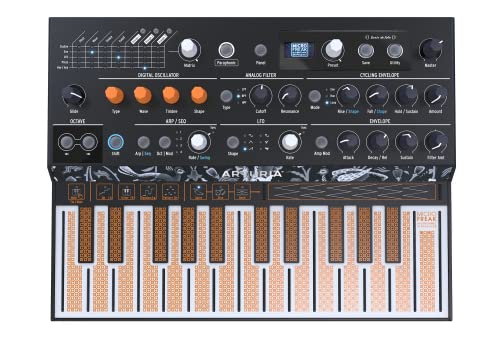What is a synthesizer?
A synthesizer is an electronic musical instrument that produces sound by generating electronic signals. It can emulate a wide range of traditional instruments, such as piano, strings, or drums, but it can also create new sounds that don’t exist in nature. Synthesizers are used in a variety of music styles, including pop, rock, electronic, and experimental music.
How does a synthesizer work?
A synthesizer works by generating electrical signals that are then processed through various circuits to produce sound. The basic components of a synthesizer include an oscillator, a filter, an amplifier, and an envelope generator. The oscillator produces a waveform, such as a sine wave, a square wave, or a sawtooth wave, that determines the pitch of the sound. The filter shapes and modifies the waveform, while the amplifier boosts the signal level. The envelope generator controls the evolution of the sound over time, including the attack, decay, sustain, and release phases.
Types of synthesizers
There are several types of synthesizers, including analog synthesizers, digital synthesizers, and software synthesizers. Analog synthesizers use analog circuits to generate and process the sound, while digital synthesizers use digital circuits and algorithms. Software synthesizers, also known as virtual instruments, are computer programs that emulate the functionality of hardware synthesizers.
Applications of synthesizers
Synthesizers are used in a wide range of musical applications, from live performances to studio recordings. They can be controlled by a variety of input devices, such as keyboards, sequencers, or MIDI controllers. Synthesizers can be used to create melodies, chords, or sound effects, and can be combined with other instruments or effects to create unique sounds and textures. They are also used in film, television, and advertising to create soundtracks and jingles.
The future of synthesizers
The development of new technology, including artificial intelligence and virtual reality, is likely to have a significant impact on the future of synthesizers. New synthesizers will be able to generate more complex and realistic sounds, and will make it easier for musicians to create and manipulate music. The rise of streaming platforms and social media has also made it easier for musicians to distribute and promote their music, and has created new opportunities for collaboration and experimentation. As music continues to evolve, synthesizers will play an important role in shaping its future.






